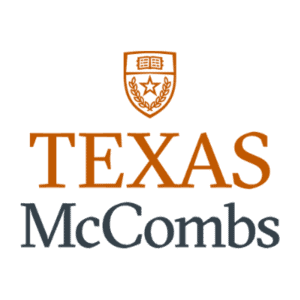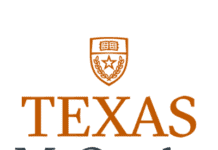
I’ve been lucky enough to have another student review of the University of Texas at Austin MSF program. This is a school and MSF that many of you have asked me about and I have been trying to provide more exposure and content on the school. This individual is a recent graduate and has been extremely kind in writing this for all of you to read. I hope this helps and I will continue working to provide more information on this great masters in finance program.
Why a specialized masters in general? Why the UT Austin program specifically
My primary motivation for pursuing the MSF was to make a career change. Prior to the MSF, I was working in a marketing role and wanted to switch into banking or consulting. I was planning on doing this later in life with an MBA but realized that I would be too entrenched in my field at that point to make a change. The MSF degree was an opportunity to acquire the knowledge and skills required to get into my desired industries in just 10 months.
I chose the University of Texas at Austin MSF program specifically because of its strong brand. MSF degrees are still relatively new and some employers are not familiar with them. However, UT MSF students don’t need to worry about this because of McCombs strong national brand. Even if employers don’t know the MSF degree, they would respect and value McCombs. In that vein, the classes and professors for the program were identical to the courses taken by our MBA counterparts. Additionally, it was encouraging to see that previous students had placed in excellent jobs such as investment banking, consulting, big 4 accounting, etc. You will find that the strongest advocates for recruiting are alumni of your MSF program. Many of these alumni were placed in prestigious firms that would be tremendously difficult to get into otherwise.
Who would you recommend the program to?
I would recommend this program to anyone who is looking to get an offer from a competitive field such as investment banking, consulting, or asset management. Many of my classmates were individuals who were not able to get these jobs out of undergrad due to a lack of relevant internship/work experience or applicable skills. This degree will equip you with the right skills/experiences so that you can stand out from your competition.
Personally, I would say that this degree is excellent for career switchers like myself. It is structured in a way that someone with little to no finance background can pick up the fundamentals quickly.
Pros and cons (if any) of the program
Pros
- UT MSF network within prestigious firms
- MBA level classes and professors
- McCombs brand
- Career services will help you prepare for recruiting – resume/cover letter help and mock interviews
- Job placement – most students placed into jobs by the end of the program. Those that didn’t were either intentionally being picky or had VISA issues
- Austin is a great city – lots of cool places to hang out, something out there for everyone
- Only 10 months – opportunity cost of improved job outcome and salary vs giving up one year of salary is well worth the tradeoff
Cons
- Class size is somewhat large, can be difficult to get to know all of your classmates (our class was 67)
- Tuition is fairly high (this is generally the case for most MSF programs, high compared to undergraduate rates)
- Practicum projects can be a mixed bag – dependent upon your project sponsor
- In order to truly learn the material, significant study time outside of class is required
- Less of a job presence on the coasts – typically most people recruit for jobs in Dallas, Houston, Austin
- Difficulty – no individual component is hard but balancing classes, recruiting, practicum can be tough. Typically, 1-2 weeks are extremely difficult with these priorities stacking up
Anything else. People usually talk about campus experience, alumni, on campus recruiting, etc. really whatever you want.
Alumni: All of the alumni I spoke to were extremely helpful in positioning me for jobs in their firms. I think there is an understanding of between alumni to make a special effort to help the next class.
Board: The MSF board was very willing to help students despite their extremely busy schedules. These individuals were executives or partner level employees in their firms. Some board members were extremely involved in placing multiple students in their respective firms. Extremely valuable resource.
Recruiting: Must be proactive and prepare for this well. Most employers at the larger firms are looking to hire for their open spots in the fall. If you aren’t prepared for this you could miss out on your top choice.
Classmates: I was extremely impressed by the work-ethic, attitude, and intellect of my classmates. They were more than willing to help me if I needed assistance. Many of them contributed significantly to my academic experience and improved my learning outcomes. Through conversations with alumni, this collegial experience has been a hallmark of previous classes as well.
—
Here is a link to the University of Texas at Austin MSF Program


